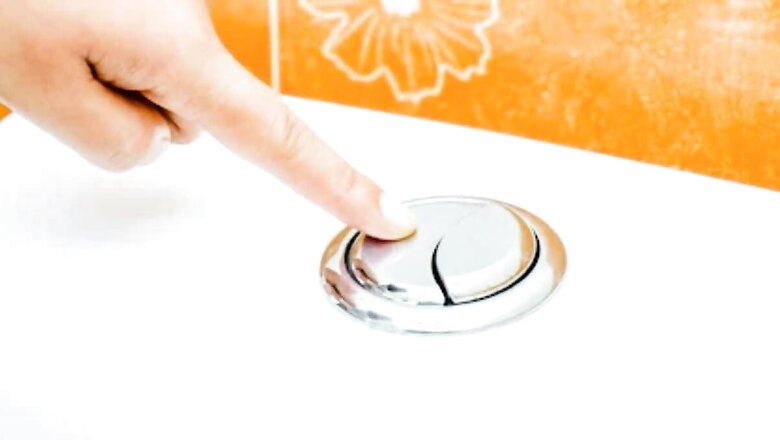
views
The concept of the traditional Indian-style toilet has almost faded away from cosmopolitan and urban localities although most rural households still follow it. The Western-style toilet – commode – has also gone through certain evolutions, since it was introduced. The lever-style flush systems for commodes are now gradually being replaced by dual-button flush systems. These flushes have two buttons, one bigger than the other. Both the buttons serve the same purpose but there is a difference. Allow us to guide you through it so that the next time you use the toilet, you will know how to use the flush right.
The modern-day double flush toilets come with two different levers or buttons. One is large, while the other one is small, with each button connected to its exit valve. The difference in the two buttons lies in the amount of water that is needed to be flushed out of the commode. The bigger lever releases approximately 6 to 9 litres of water for flushing, while the smaller one releases about 3 to 4.5 litres. The larger lever is intended for solid waste, whereas the smaller lever is for liquid waste.
If you urinate, you must press the small button. On the other hand, after defecation, a big button should be pressed to flush the solid waste from the commode. Pressing both buttons will empty the flush tank but it does not mean that more water will come out than the capacity of the flush tank. If you want the buttons not to get damaged then press only one button at a time.
However, due to unawareness of the function, you can end up wasting water as you use the wrong button for the wrong toilet activity. Studies show that by implementing dual flushing in households, it’s possible to conserve up to 20,000 litres of water annually compared to single flush systems. While the initial installation might incur slightly higher costs than standard flush mechanisms, it proves environmentally friendly and contributes to reducing water expenses over time.
The idea of dual flush toilets was conceived by American industrial designer Victor Papanek, who introduced it in his book ‘Design for the Real World’ in 1976. Australia became the pioneer in implementing this concept in 1980.














Comments
0 comment